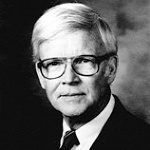Quotes about God-Waiting_on
When led of the Spirit, the child of God must be as ready to wait as to go, as prepared to be silent as to speak.
Wait on God and He will work, but don’t wait in spiritual sulks because you cannot see an inch in front of you! Are we detached enough from our spiritual hysterics to wait on God? To wait is not to sit with folded hands, but to learn to do what we are told.
Waiting in Scripture does not mean idly standing by. It is not a matter of resignation, but of commitment to the will of God. But what are we to do when we do not know what God wants us to do? What are we to do while we wait for the divine timetable to run its course? The answer of biblical precept and illustration is one. Do your duty; live in the light God has already given you. By walking in it you will find that God will make the future path clear.
Discovering God’s Will, By Permission of the Banner of Truth Trust, Carlisle, PA. 1991, p. 115.
Appearances can be deceptive. The fact that we cannot see what God is doing does not mean that He is doing nothing. The Lord has His own timetable. It is we who must learn to adjust to it, not vice versa. When God’s time comes nothing will stand in His way. We can therefore wait for Him with this happy confidence: “As for God, His way is perfect” (2 Samuel 22:31).
Discovering God’s Will, By Permission of the Banner of Truth Trust, Carlisle, PA. 1991, p. 114.
To wait on God is to live a life of desire toward Him, delight in Him, dependence on Him, and devotedness to Him.
Prayerful waiting on God is indispensable to effective service. Like the time-out in a football game, it enables us to catch our breath and fix new strategy. As we wait for directions, the Lord frees us from the tyranny of the urgent. He shows us the truth about Himself, ourselves, and our tasks. He impresses on our minds the assignments He want us to undertake. The need itself is not the call; the call must come from the God who knows our limitation. “The Lord pities those who fear Him. For He knows our frame; He remembers that we are dust” (Psalm 103:13-14). It is not God who loads us until we bend or crack with an ulcer, nervous breakdown, heart attack, or stroke. These come from our inner compulsions coupled with the pressure of circumstances.
What’s striking when you consider that God is a God of promise is that it means that our lives are, by design, lives of waiting.
The Story of Promise by Michael Lawrence taken from Biblical Theology by Michael Lawrence, copyright 2010, Crossway Books, a division of Good News Publishers, Wheaton Illinois 60187, www.crosswaybooks.org. Page 169.
Waiting for God is not laziness. Waiting for God is not going to sleep. Waiting for God is not the abandonment of effort. Waiting for God means, first, activity under command; second, readiness for any new command that may come; third, the ability to do nothing until the command is given.
Waiting for God means power to do nothing save under command. This is not lack of power to do anything. Waiting for God needs strength rather than weakness. It is power to do nothing. It is the strength that holds strength in check. It is the strength that prevents the blundering activity which is entirely false and will make true activity impossible when the definite command comes.
It is impossible to describe the abundance of peace and heavenly joy that often flows into my soul because of the answers I obtain from God after waiting on Him for help and blessing. The longer I have had to wait on Him or the greater my need it, the greater the enjoyment when at last the answer came.
The Autobiography of George Muller, 1984, p. 190. All quotations taken from books published by Whitaker House are used with permission of the publisher. Whitaker House books are available at Christian bookstores everywhere. Get this book!
There is an in-between-ness to this life. God gives us great promises in the gospel. Then He calls us to wait for their fulfillment. He doesn’t give us everything right away. He calls us to wait. In between the giving and the fulfilling of God’s promises, the waiting can be hard. Sometimes it can seem impossible to endure, because what we’re stuck in for now doesn’t just fall short of God’s great promises. Our experience can be the opposite of God’s great promises. Living in-between is not easy. But God’s greatest gift is not always what we think. God’s greatest gift is Himself. And He does give Himself right now. His own reality and presence and nearness and immediacy and smile: “The Lord is near to the brokenhearted” (Psalm 34:18), “The Lord is near to all who call upon Him, to all who call upon Him in truth” (Psalm 145:18). That is not a consolation prize, not something we have to settle for. There is nothing greater in all this world. We don’t understand how God draws near and we can’t control Him. But this is real, very real, very wonderful. As we stumble forward, God’s real presence gives us strength to wait without self-pity but with resilient good cheer.
[To wait on God] means to pause and soberly consider our own inadequacy and the Lord’s all-sufficiency, and to seek counsel and help from the Lord, and to hope in Him (Psm. 33:20-22; Isa. 8:17)… The folly of not waiting for God is that we forfeit the blessing of having God work for us. The evil of not waiting on God is that we oppose God’s will to exalt Himself in mercy. God aims to exalt Himself by working for those who wait for Him.
Desiring God, 1996, p. 146, Used by Permission, www.desiringGod.org. Get this book!
Prayer is the essential activity of waiting for God: acknowledging our helplessness and His power, calling upon Him for help, seeking His counsel.
Desiring God, 1996, p. 146, Used by Permission, www.desiringGod.org. Get this book!
Prayer is the antidote for the disease of self-confidence that opposes God’s goal of getting glory by working for those who wait for Him.
Desiring God, 1996, p. 146, Used by Permission, www.desiringGod.org. Get this book!
Waiting for the Lord in a season of darkness should not be a time of inactivity. We should do what we can do. And doing is often God’s appointed remedy for despair.
Fold Not the Arms of Action taken from When the Darkness Will Not Lift by John Piper, 2006, Crossway Books, a division of Good News Publishers, Wheaton Illinois 60187, www.crosswaybooks.org, p. 45.
They that wait upon the Lord will also wait for Him.
If the Lord Jehovah makes us wait, let us do so with our whole hearts; for blessed are all they that wait for Him. He is worth waiting for. The waiting itself is beneficial to us: it tries faith, exercises patience, trains submission, and endears the blessing when it comes. The Lord’s people have always been a waiting people
Those who do not hope cannot wait; but if we hope for that we see not, then do we with patience wait for it.
Waiting on God entails three elements:
1. Complete dependence on Him (embracing the truth of what He has just said and actively entrusting one’s soul and circumstances to the God who does what He says He does).
2. Yielding to His schedule, i.e., patiently acquiescing to the wisdom of His timing, not ours.
3. Seeking God’s face, pressing in to know Him better and to love Him more.
One Thing, Christian Focus, © Enjoying God Ministries, 2004, p.102-103. www.enjoyinggodministries.com. Used by Permission.
Working and waiting belong together. In combination they will deliver us both from the presumption which thinks we can do everything and from the pessimism which thinks we can do nothing.
The Message of 1 and 2 Thessalonians, 1991, InterVarsity Christian Fellowship. Used with permission of InterVarsity Press UK, p. 42.
The benefits of waiting [on God] are quite numerous:
1. Freedom from shame (Psm. 25:3).
2. Courage (Psm. 27:14).
3. Strength (Isa. 40:31).
4. God’s promises (Psm. 37:9).
5. Deliverance from the bitter fruit of self-effort (Psm. 106:13-15; Isa. 30:15-18).
6. Vindication (Pro. 20:22).
7. God’s favor (Psm. 147:11)
8. God’s salvation (Lam. 3:26).
9. God’s support (Isa. 64:4).
A Journey to Victorious Praying, Moody Publishers, 2003, p. 167-168.
Get this book!
The faith of Christ offers no buttons to push for quick service. The new order must wait the Lord’s own time, and that is too much for the man in a hurry. He just gives up and becomes interested in something else.
Waiting confronts us at the deepest level that we are not in charge.
Waiting on God is not in apathy and indifference; it implies intense activity.
Waiting has four purposes. It practices the patience of faith. It gives time for preparation for the coming gift. It makes the blessing the sweeter when it arrives. And it shows the sovereignty of God – to give just when and just as He pleases.
There is not a more God honouring grace of the Christian character than patience – a patient waiting on and for the Lord. It is that Christian grace, the fruit of the Spirit, which will enable you to bear with dignity, calmness, and submission the afflictive dealings of your Heavenly Father, the rebuke of the world, and the wounding of the saints.




















